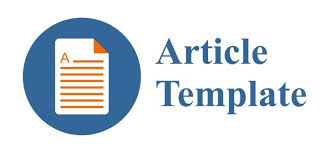PSYCHOLOGICAL ASPECTS OF OBJECTIVE ASSESSMENT: STUDENT PERCEPTION
Keywords:
psychological dimensions of objective assessmentAbstract
In education, assessment plays a central role in shaping both student learning outcomes and motivation. Among various assessment methods, objective assessment—often characterized by standardized tests, multiple-choice questions, and automated grading—aims to minimize bias and subjectivity. However, while these tools provide uniform criteria for evaluation, the psychological effects on students are multifaceted. Understanding how students perceive and respond to objective assessment is crucial for educators aiming to create an environment conducive to learning and development. This article delves into the psychological dimensions of objective assessment, exploring student perceptions, their impact on motivation and stress, and how objective methods can be optimized for better learning outcomes
References
1. Bandura, A. (1997). Self-Efficacy: The Exercise of Control. W.H. Freeman and Company.
2. Black, P., & Wiliam, D. (1998). Assessment and Classroom Learning. Assessment in Education: Principles, Policy & Practice, 5(1), 7–74.
3. Deci, E. L., & Ryan, R. M. (1985). Intrinsic Motivation and Self-Determination in Human Behavior. Springer.
4. Eisner, E. W. (1993). Reshaping Assessment in Education: Some Criteria in Search of Practice. Journal of Curriculum Studies, 25(3), 219-233.
5. Feldman, K. A., & Paulsen, M. B. (1999). Faculty Motivation: The Role of a Supportive Teaching Culture. Journal of Higher Education, 70(6), 643-669.
6. Hattie, J., & Timperley, H. (2007). The Power of Feedback. Review of Educational Research, 77(1), 81-112.
7. Sarason, I. G. (1984). Stress, Anxiety, and Cognitive Interference: Reactions to Tests. Journal of Personality and Social Psychology.
8. Skinner, B. F. (1953). Science and Human Behavior. Macmillan.
9. Tyler, R. W. (1949). Basic Principles of Curriculum and Instruction. University of Chicago Press.
10. Wiggins, G. P. (1998). Educative Assessment: Designing Assessments to Inform and Improve Student Performance. Jossey-Bass.
11. Zeidner, M. (1998). Test Anxiety: The State of the Art. Springer.



